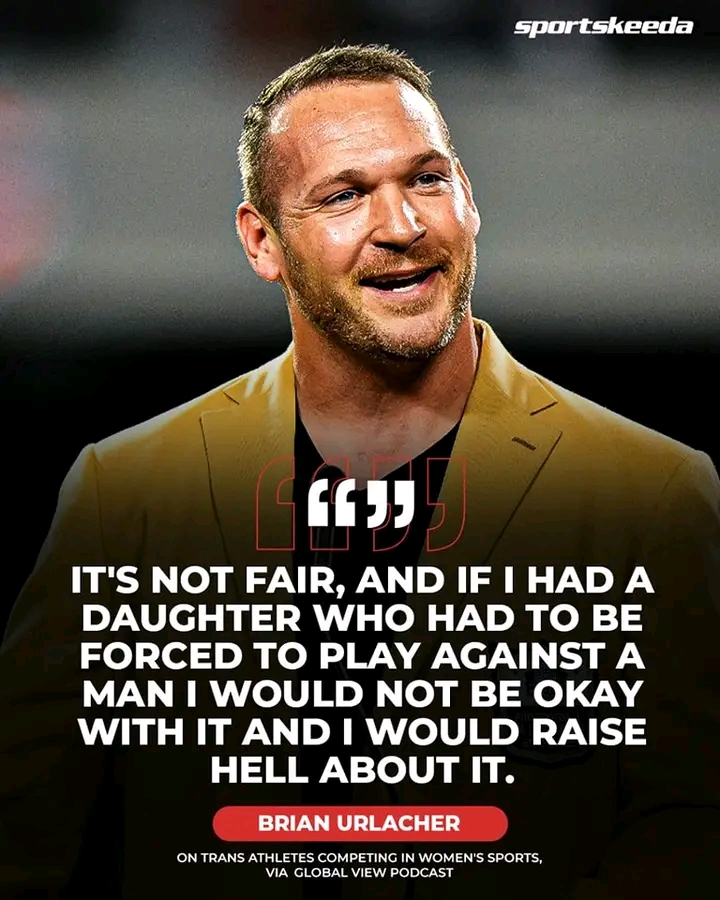Bears Legend Brian Urlacher Makes His Stance Clear on Trans Athletes Competing in Women’s Sports
When it comes to hard-hitting opinions, Brian Urlacher is just as fearless off the field as he was on it.
The Hall of Fame linebacker and Chicago Bears legend recently made headlines—not for his defensive prowess, but for weighing in on one of the most hotly debated topics in modern sports: the inclusion of transgender athletes in women’s competitions.
Urlacher didn’t mince words during a recent interview when asked about his stance. The former NFL star expressed concerns about fairness and competitive balance in women’s sports, stating plainly that “biological males should not be competing against biological females.” He emphasized that his opinion isn’t about hate or exclusion, but about preserving what he sees as the integrity of female athletic competition.
“I support everyone’s right to live how they want,” Urlacher said. “But when it comes to sports, there has to be a line. Women train hard and deserve a level playing field.”
Urlacher’s stance adds his name to a growing list of current and former athletes who have voiced apprehension about the inclusion of trans women in women’s sports. While some have praised his courage in speaking up, others have criticized his comments as exclusionary or lacking nuance.
The debate itself is multifaceted, pitting ideals of inclusion and equality against questions of physical advantage and competitive fairness. Governing bodies across different sports have scrambled to develop guidelines, often resulting in inconsistent policies that leave athletes—and fans—confused or divided.
Still, Urlacher’s comments reflect the opinion of a sizable portion of the sports world and American public. For many, the issue is not rooted in bigotry but in genuine concern over fairness and the future of women’s sports.
Whether you agree or disagree with him, one thing is certain: Brian Urlacher has never been one to shy away from tough conversations. As more public figures take stances on this evolving issue, the dialogue is sure to continue—on the field, in locker rooms, and across the broader cultural landscape.

